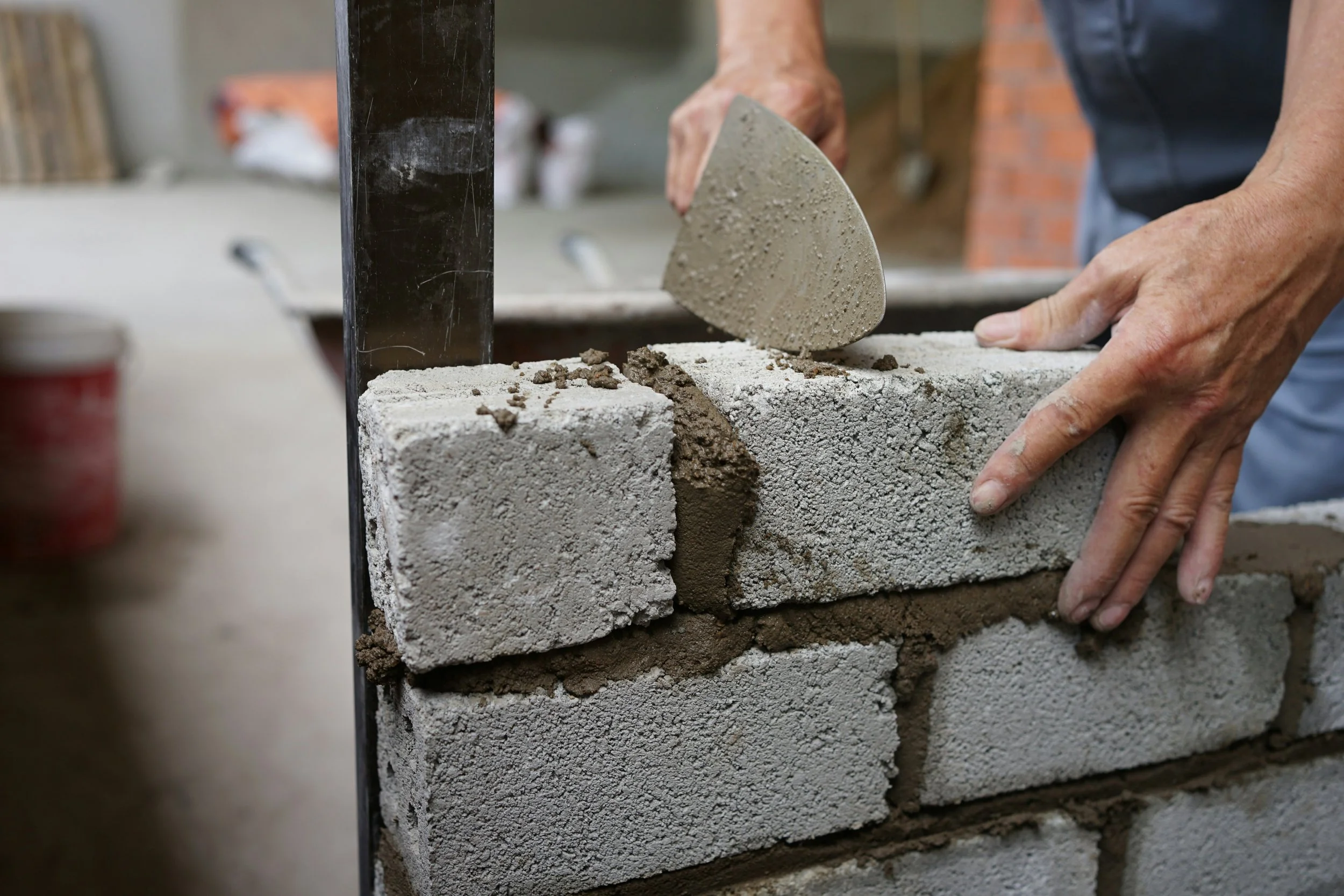
Healing old patterns and creating new connections in a blended family—one person at a time.
Therapy for individuals in a blended family—online in Phoenix and all of AZ.
You had hoped mealtime together would bring moments of connection — a chance to feel like a family. But now, it's become something you want to avoid, because no one seems happy, and connection feels out of reach.
Blending a family means building something new — but you’re not starting from scratch.
You, your partner, and each child brings your own bricks: memories, routines, hopes, and hurts.
Sometimes those bricks don’t fit the way you imagined. One overlaps another, and what once felt secure now feels uncertain or out of place.
Your kids seem resistant to the new stepparent, or your partner’s kids do not seem to respect your boundaries. You want to create a home that has love and honors each individual. Maybe your parenting styles are clashing with your partner or your old wounds from previous relationships are getting in the way.
You feel you are in a tug of war between your own needs and helping create connections for everyone in this family dynamic. Things just aren’t “clicking” the way you want. You’re not sure how to move forward and wonder if you’re doing it wrong.
Therapy can help you sort through these feelings, navigate the complicated dynamics, and build a stronger, healthier foundation for your blended family.
The weight of blending a family does not clock out when you clock in at work. You might find yourself distracted in meetings, snapping at coworkers, or running low on energy because of a late night argument, or emotional tension at home.
The other parent got your child a cell phone when it was not what you agreed on…
You’re noticing your child pulling away, and it feels like the other parent might be saying things that turn them against you. You’re worried you're being pushed out of their life…
The other parent keeps pushing to change the parenting agreement, and it’s starting to take a real toll—emotionally and financially…
I love my partner, but I didn’t expect to feel so rejected by their kids. I’m questioning whether I’m cut out for this…
My parent remarried later in life, and I thought I’d be fine with it, but I’m actually feeling really angry, left out, and that I don’t belong in my own family anymore, it’s all changed…
It is harder to concentrate, harder to rest and sometimes even harder to remember what feeling balanced used to be like.
Relationships outside the family are becoming more difficult to fit in. You’re too busy getting kids to and from their other parents' home. You might start pulling away from friends because it’s difficult to keep explaining the chaos—or you feel ashamed that things aren’t going better.
One on one time with your partner has gone out the window. Intimacy with your partner may feel strained, with conversations reduced to logistics or conflicts about parenting.
Emotionally you may feel like you’re walking on eggshells, trying to help everyone manage their feelings while ignoring your own. That constant stress can turn into burnout, resentment, anxiety, or even a sense of hopelessness that this “blended life” you wanted to build is not what you imagined.
Therapy for blended families that meets you where you are:
I listen deeply—because your story matters. Every blended family has its own history, dynamics and challenges. I take the time to truly understand what you're experiencing, so you feel heard, never judged.
You’ll feel seen, validated, and supported. In our work together, your feelings won’t be dismissed or minimized. I will help you make sense of the overwhelm, offering a steady space to dissect and reflect.
I offer guidance and practical tools. You don’t just need someone to listen, you need help finding a way forward. I will help you with communication skills, boundaries, and strategies that work in real-life blended family dynamics.
Support that strengthens you—helping your whole family. While you’re coming to therapy by yourself, we’ll be looking at the whole picture of your family life. You’re not just doing this for you, you’re doing this for your family. Therapy helps you reconnect with your own needs, values, and voice.
METHODS:
-
Cognitive Behavioral Therapy (CBT) is a practical and supportive approach that helps you understand how your thoughts, emotions, and behaviors are connected. When you change the way you think, you can begin to feel and respond differently—even in tough blended family situations.
-
DBT (Dialectical Behavior Therapy) helps you manage big emotions, feel more in control, and improve your relationships.
You’ll learn real-life skills to handle stress, set boundaries, and communicate more effectively.
It’s not just talk—it’s practical support to help you feel more steady, balanced, and confident in daily life.
-
EFT for Individuals (EFT) helps you gently explore your emotions, understand their roots, and respond in new, more supportive ways.
It’s a compassionate approach that helps you feel more secure, connected, and true to yourself—especially in your relationships.
-
Trauma memories don’t store like ordinary memories. They can get “stuck”, making you feel anxious, triggered or like it’s all still happening.
Eye Movement Desensitization and Reprocessing (EMDR) gently helps your brain process those memories so they lose their emotional charge. You can feel more grounded , calm and present. If you feel stuck in trauma, EMDR can help you move forward with more peace.
Therapy for blended families can help you:
01
Improve communication between parents, stepparents, and children
02
Gain more patience for emotionally hard moments because new attachments don’t happen on a schedule.
06
Find a sense of balance between your needs and the needs of your family
03
Find practical tools for parenting and co-parenting conflicts when rules in each home are different
05
Feel seen and supported in the emotions you’ve been carrying—and gain hope that things can get better, even if it’s messy right now.
04
Build deeper connection with your partner and family members.
Blending a family is building a home. Each conversation, boundary and attempt at connection is placing a new brick in the foundation. It's about honoring where each brick came from—the old and the new. Together, we’ll carefully lay the bricks, one by one, until you’ve created a home where everyone feels safe, valued, and understood.
Frequently asked questions —
-
Yes, Therapy can provide a safe space to work through the unique challenges that come with blending a family, like parenting differences, loyalty conflicts, communication breakdowns, and navigating roles as stepparents or stepchildren.
-
Individual therapy can be a powerful way to support your blended family. As you gain insight into family dynamics and learn to respond with clarity and compassion, those changes naturally impact your relationships. Healing and growth often start with one person — and that person can be you.
-
Not at all. In fact, starting therapy before you officially blend your family can help you identify potential stressors, open communication about parenting styles, and build stronger relationships from the beginning.
-
Yes, it is never too late to reset and rebuild. Counseling can help bring you clarity, structure and emotional healing, even when things feel overwhelming.
-
Therapy can help you manage relationships with former partners in a way that honors your new family structure—while reducing conflict and protecting your peace of mind






